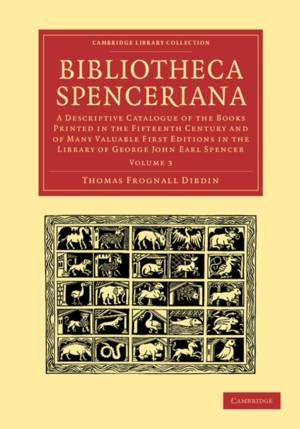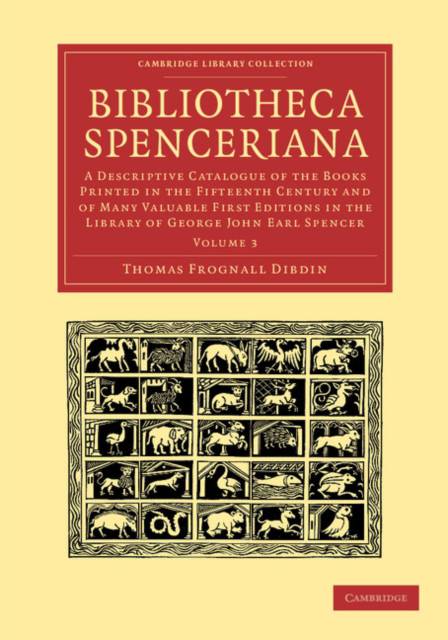
Bedankt voor het vertrouwen het afgelopen jaar! Om jou te bedanken bieden we GRATIS verzending (in België) aan op alles gedurende de hele maand januari.
- Afhalen na 1 uur in een winkel met voorraad
- In januari gratis thuislevering in België
- Ruim aanbod met 7 miljoen producten
Bedankt voor het vertrouwen het afgelopen jaar! Om jou te bedanken bieden we GRATIS verzending (in België) aan op alles gedurende de hele maand januari.
- Afhalen na 1 uur in een winkel met voorraad
- In januari gratis thuislevering in België
- Ruim aanbod met 7 miljoen producten
Zoeken
Bibliotheca Spenceriana - Volume 3
A Descriptive Catalogue of the Books Printed in the Fifteenth Century and of Many Valuable First Editions in the Library of George John Earl Spencer
Thomas Frognall Dibdin
€ 101,95
+ 203 punten
Omschrijving
At his death, George Spencer (1758-1834) had created the greatest private library in Europe. At the time, many aristocrats were spending huge sums acquiring rare printed books. With monastic and aristocratic libraries in Europe being dissolved, collectors had access to thousands of examples. The Second Earl Spencer's interests were in English 'black-letter' printing, especially the works of Caxton, and continental incunables, particularly first editions of Greek and Latin classics. Thomas Dibdin (1776-1847) was employed as Spencer's librarian and visited Europe searching for new acquisitions. Published in 1814-15, this catalogue is of the earliest and rarest items in the collection. Each is described in detail, with reproductions of woodcuts and engravings, making this a fascinating record of one man's commitment to collecting the earliest examples of this revolutionary invention. Volume 3 continues to catalogue the classics, along with early editions of Aquinas, St Augustine and Thomas à Kempis.
Specificaties
Betrokkenen
- Auteur(s):
- Uitgeverij:
Inhoud
- Aantal bladzijden:
- 524
- Taal:
- Engels
- Reeks:
Eigenschappen
- Productcode (EAN):
- 9781108051095
- Verschijningsdatum:
- 28/06/2012
- Uitvoering:
- Paperback
- Formaat:
- Trade paperback (VS)
- Afmetingen:
- 178 mm x 254 mm
- Gewicht:
- 898 g

Alleen bij Standaard Boekhandel
+ 203 punten op je klantenkaart van Standaard Boekhandel
Beoordelingen
We publiceren alleen reviews die voldoen aan de voorwaarden voor reviews. Bekijk onze voorwaarden voor reviews.









